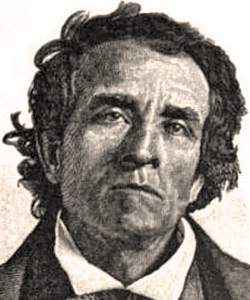Theodore Dwight Weld (American National Biography)
Scholarship
When his voice gave out in 1837, [Theodore Weld] took upon himself the task of creating a new roster of antislavery speakers….At training sessions in New York in late 1837, he met Sarah Grimké and Angelina Grimké, renegade sisters from South Carolina's slaveholding elite who had become antislavery activists. Angelina Grimké and Weld fell in love. Their courtship coincided with the Grimké sisters forthright advocacy of woman's equality, an issue that acted as a lightning rod for various matters, dividing abolitionists and inducing a schism in their ranks. Weld was caught between warring factions. In love with Angelina and egalitarian in his own views toward women, he nonetheless worried that agitating the "woman question" would divert energies from antislavery and bring that movement new opposition. After a romance made stormy in part by the tensions among reformers, they were married in 1838 in a ceremony marked by explicit commitment to equality of the sexes. They also vowed to share their life together with Sarah Grimké, who would live with them for more or less the rest of their lives.
Almost immediately Weld and the Grimkés began work on American Slavery As It Is (1839), a compilation of firsthand descriptions of slave life in the South. It became the most widely distributed and most influential of all American antislavery tracts, even influencing Harriet Beecher Stowe's depiction of slavery in Uncle Tom's Cabin.
Almost immediately Weld and the Grimkés began work on American Slavery As It Is (1839), a compilation of firsthand descriptions of slave life in the South. It became the most widely distributed and most influential of all American antislavery tracts, even influencing Harriet Beecher Stowe's depiction of slavery in Uncle Tom's Cabin.
Robert H. Abzug, "Weld, Theodore Dwight," American National Biography Online, February 2000, http://www.anb.org/articles/15/15-00744.html.



